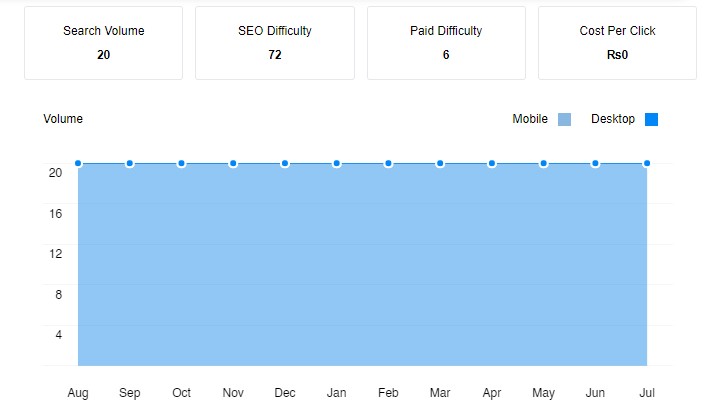7 Keyword Research Tips to Boost Your Blog SEO

Keyword research is the crucial step that helps your blog stand visible to the readers, and the search engine bolts.
Google’s algorithm is cutting-edge and changing continuously; everything that works for you today will not work after five years. Same thing applies to the keyword research and it is the essence of ranking.
In this post, I’ll show you keyword research tips that’ll take your blog SEO to the next level.
This keyword research tutorial is fundamental to your up-and-coming blog to catch a quality audience.
Put Simply? When the users search in the Google search engine, they type in the keyword phrase, and if you rank on that keyword, you’d definitely get the traffic.
I’ll introduce you to some effective keyword research tips to help you find the most relevant keywords that work soundest for your target audience.
Let’s dig into the seven keyword research tips to find the right keyword!
1. Evaluate Keywords
The first keyword research tip is to find which keyword to use. In the blogging world, there are hundreds of criteria for choosing keywords.
We suggest only two things to consider when choosing a keyword for beginners.
- Search Volume:
Search volume shows how much the keyword is being searched in a month. It displays the popularity of the keyword.
We’d recommend you choose the keyword with a search volume of 500 and more.
- SEO difficulty:
SEO difficulty is the factor that shows the competition for that keyword. Put more simply? It shows how difficult it’d be for you to rank for that keyword and appear in the top ten search results.
It also includes several factors such as backlinks, domain authority, and the quality of the content.
For a new blog, you should look for an SD score of 40 or less.
How can you find these keyword insights?
There are multiple worthy keyword research tools. You just need to type in your biggest competitor’s domain in the search bar of their tool. These keyword research tools provide you with impressive insightful data about your competitors.
What keywords are they ranking on? The top pages of your competitors and the keyword they focus on. Keyword research tools also tell you the keyword’s search volume and SD score.
Another way is to install the Free Chrome extension of the keyword research tool to make it more convenient for you to keyword research when you’re browning. Chrome extensions give you insights into search volume, SEO difficulty, and CPC.

I’ll suggest practical working tools that many successful bloggers and I use to get their keyword research done. It helps you drive the traffic to your blog like a pro. Here it is:
2. Use Google Suggestions
Secondly, use the Google suggestions method to come up with some keyword research.
Have you ever noticed that a list of suggestions pops in when you search for something in the google search engine? You must! It must pique you. These keywords are the most popular searches related to your keyword because google itself suggests them. You can also utilize these keywords for your blog post.

Another way to go is to type the keyword in the Google search engine and hit enter and scroll down until the end of the first page; you’ll see the “Related searches”; these are the popular search queries you can consider adding to your content.

Now you’ve some valuable data via the most extensive search engine suggestions.
3. Target Long-Term Keywords
One of the most practical keyword research techniques is targeting long-term keywords. It includes 3-4 or maybe more, as it covers a specific area for targeted audiences.
For Instance, instead of using head-term keywords like “blog SEO,” you can use a long-term keyword such as “How to do a WordPress blog SEO.” These particular search phrases precise the target audience and the competition level.
This keyword research tip makes you help the specific audience and find them what they are looking for in the first place. Choosing the long-term keyword increases your chances of having an audience ready to act.
Long-term keyword research works best for beginners or new bloggers, but as your blog gets traffic, you need to incorporate all lengths of keywords into your blog.
4. Use Competitor Research Technique
Another best technique is to keep a keen eye out for competitors’ blogs and what keywords are working for them.
Check out how effective keywords they use. Is there anything missing there? And you can fill out the gap; some variations in their keyword can work best for you.
You can also use these 6 powerful strategies to increase your website traffic.
5. Question-Answer Tactic
The question-answer tip is effective among most of the practical keyword research tips. When folks ask questions, you’d better understand what exactly they are looking for.
To fill the gap and improve the content, you need extensive research. Go through a public question-answer platform such as Quora and Reddit to know the genuine query of your target audience.

You use the least answered questions, find low-hanging fruit means low-competitive keywords from them, and then use them in your articles.
Blog post comments are handy to know your audience better. Don’t forget to read the blog post’s comments; you can also find valuable data to provide helpful insight into your content.
6. Voice Search Technique, Seriously
Do you happen to know that mobile phones dominate 60% of website traffic?

Your new friend is voice search!
So, it seems essential to incorporate voice search into your keyword research method. As mobile searches increase, consider words that can be pronounced easily rather than typed.
If you still haven’t used this strategy? Try it out! When crafting voice search keywords, keep ensuring that your Keyword should align with the user’s intent.
7. Target the Variation of Keywords
Once you scout out keyword research, you can add them to your content. Perfect! But… Do you know there is still space?
Hang in there!
It would be best if you targeted some synonyms of related keywords; it increases the range of keywords on the same post without stuffing the same keyword in it. Your content will be able to rank for those related keywords as well.
You can easily find the perfectly relevant long-term keyword of your keyword that has high search volume. It provides you an opportunity to ideally use keywords in your content rather than using the exact repetitive keywords.
Final Thoughts
Over time, you’ll find your own keyword research method and discover your favorite tool.
The keyword research is the crux of your article, and it is an ongoing process. In time, the keyword’s popularity changes as well.
That means it’s a continuous process, and you need to put in more effort as the SEO of your blog depends on your keyword strategy.
Does it interest you? Don’t forget to read how to start a blog.
Also, tell you the keyword research method and the tools you love to use.
Let’s hop on the comment section.
